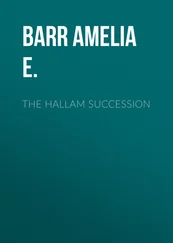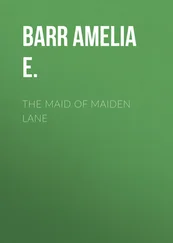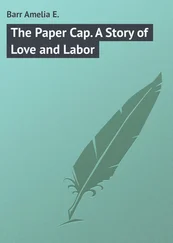Amelia Barr - The Lion's Whelp
Здесь есть возможность читать онлайн «Amelia Barr - The Lion's Whelp» — ознакомительный отрывок электронной книги совершенно бесплатно, а после прочтения отрывка купить полную версию. В некоторых случаях можно слушать аудио, скачать через торрент в формате fb2 и присутствует краткое содержание. ISBN: , Издательство: Иностранный паблик, Жанр: foreign_prose, на английском языке. Описание произведения, (предисловие) а так же отзывы посетителей доступны на портале библиотеки ЛибКат.
- Название:The Lion's Whelp
- Автор:
- Издательство:Иностранный паблик
- Жанр:
- Год:неизвестен
- ISBN:http://www.gutenberg.org/ebooks/50978
- Рейтинг книги:3 / 5. Голосов: 1
-
Избранное:Добавить в избранное
- Отзывы:
-
Ваша оценка:
- 60
- 1
- 2
- 3
- 4
- 5
The Lion's Whelp: краткое содержание, описание и аннотация
Предлагаем к чтению аннотацию, описание, краткое содержание или предисловие (зависит от того, что написал сам автор книги «The Lion's Whelp»). Если вы не нашли необходимую информацию о книге — напишите в комментариях, мы постараемся отыскать её.
The Lion's Whelp — читать онлайн ознакомительный отрывок
Ниже представлен текст книги, разбитый по страницам. Система сохранения места последней прочитанной страницы, позволяет с удобством читать онлайн бесплатно книгу «The Lion's Whelp», без необходимости каждый раз заново искать на чём Вы остановились. Поставьте закладку, и сможете в любой момент перейти на страницу, на которой закончили чтение.
Интервал:
Закладка:
Then he moved his chair to the hearth and looked around. It was a large room, full of the wavering shadows of the blazing logs and the long taper. "What an ancient place!" he sighed. "'Tis a bed fine enough and big enough for a monarch. Generations have slept on it. Those pillows must be full of dreams. If all the souls that have slept in this room were to be gathered together, how great a company they would be! If I could see them, I would enlist all for my hero – they should swear to be Cromwell's men! In solemn faith the room is full of presence ." Then he rose, turned his face bravely to the shadowy place, and bending his head said, "Wraiths of the dead, I salute you. Suffer me to sleep in peace in your company."
He did not sit down again, but having cast over himself the shield and balm of prayer, he soon fell into the sound sleep of weary youth. The sun was high when he awoke, and he was ashamed of his apparent indolence and would scarce delay long enough to eat a hasty breakfast. Then his horse was waiting, and he stood at the threshold with Mrs. Swaffham's hand in his. There were tears in her eyes as she blessed him and bade him "God-speed," and gave him her last messages to her husband and sons.
"Fare you well," he answered, and "God be with you! I hope to be sent this way again, and that soon. Will you give me welcome, madame?"
"You will be welcome as sunshine," answered Mrs. Swaffham.
Then he looked at Jane, and she said, "God speed you on your journey. You have words for my father and brothers, but if you find the right time, say also to General Cromwell that Jane Swaffham remembers him constantly in her prayers, and give him these words for his strength and comfort – 'They shall be able to do nothing against thee, saith the Lord: My hands shall cover thee.'"
He bowed his head, and then looked steadily at her; and in that momentary communion realised that he had lost himself, and found himself again, in the being of another – that he had come in contact with something and found his spirit had touched a kindred spirit. Yet he said only, "Good-bye, till we meet again."
As he mounted, Mrs. Swaffham asked him if he went by York, and he answered, "Yes, I know perfectly that road, and I must not miss my way, for I am a laggard already."
"That is right," she said. "The way that is best to go is the way that best you know."
He did not hear the advice, for the moment his horse felt the foot in the stirrup he was off, and hard to hold with bit and bridle. They watched him down the avenue, the sun glinting on his steel armour and morion and the wind tossing behind his left shoulder the colours of the Commonwealth.
When he was quite out of sight, they turned into the house with a sigh, and Mrs. Swaffham said, "Now, I must have the house put in order. If I were you, Jane, I would go to de Wick this afternoon. Matilda is full of trouble. I cannot feel indifferent to her."
"She says the kingfishers have left de Wick waters. They have bred there for centuries, and the Earl is much distressed at their departure."
"No wonder. Many people think they bring good fortune. I would not say different. There are more messengers of good and evil than we know of. If I get things in order, I will also go to de Wick. Reginald de Wick and I were friends when we could hardly say the word – that was in King James' reign. Dear me! How the time flies!"
Then Jane went to her room and began to fold away the pretty things she had worn the previous night. She smoothed every crease in her silk gown, and fingered the lace orderly, and folded away her stockings of clocked silk and her bronzed morocco shoes with their shining silver buckles. And as she did so, her heart sat so lightly on its temporal perch that she was singing and did not know it until her mother opened the door, and like one astonished, asked, "What are you singing, Jane?"
"Why, mother! Nothing but some verses by good George Wither."
Then the mother shut the door again. If George Wither had written what Jane was singing, she was sure the words were wise and profitable; for Wither was the poet of the Puritans, and his " Hallelujah " all to the families of the Commonwealth, that the " Christian Year " has been to our own times. So Jane finished without further interruption, but with rather less spirit her song – " For Lovers being constrained to be absent from each other ."
"Dearest fret not, sigh not so,
For it is not time nor place
That can much divide us two;
Though it part us for a space."
And she did not know that, at the very same moment, Cluny Neville was solacing the loneliness of his ride by the same writer's " Hymn for Victory " giving to its Hebraic fervour a melodious vigour of interpretation admirably emphasised by the Gregorian simplicity of the tune to which was sung —
"It was alone Thy Providence,
Which made us masters of the field.
Thou art our castle of defense,
Our fort, our bulwark, and our shield.
And had not Thou our Captain been,
To lead us on and off again;
This happy day, we had not seen,
But in the bed of death had lain."
CHAPTER IV
SO SWEET A DREAM
"To judge events, or actions, without connecting them with their causes, is manifestly unjust and untruthful. Such judgments may make inflexible justice to appear tyranny; righteous retribution to wear the guise of cruelty; and virtue itself to have the likeness of vice."
"All love is sweet,
Given or returned. Common as light is love,
And its familiar voice wearies not ever."
Peace was now confidently predicted, but hope outruns events, and the winter slowly settled down over the level dreariness of the land without any apparent change in the national situation. People grew tired of expecting, and turned almost sullenly to the daily duties of life. For in the North, the winter weather would certainly bring the winter truce, and they must bear the inaction and suspense as well as they were able.
In de Wick, the situation was pitiably forlorn and desolate. The great trees around it stood with dripping leaves motionless in the thick fog; the long grasses lay withered and brown; the livid waters of the lake were no longer enlivened by the scream of the kingfishers, and about the house were silence and desolation. Matilda would gladly have escaped its depressing atmosphere for a little while every day, but she could not, for the roads leading from it were almost quagmires unless steadied by frost, and it was only rarely on such occasions that the horses could be spared to take her as far as Swaffham. These visits were eagerly expected by both girls, and yet were usually regretted; for Matilda could not help saying many hard things, and Jane could not conscientiously quite pass them over. Much was excused for the sake of her sorrow and loss and visible poverty, but even these excuses had limitations and every interview brought with it many sharp words not quite washed out by reconciling tears and promised forgetfulness.
Even the atmosphere of Swaffham, though grateful and cheering, was exasperating to the poor royalist lady. There was such cheerfulness in its comfortable rooms, such plenty of all the necessaries of life, such busy service of men and maids, such active, kindly hospitality to herself, and such pleasant companionship between Jane and her mother, that Matilda could not help a little envious contrasting, a little backward thought of the days when her own home had been the light of its neighbourhood, and her father and mother had entertained in splendid fashion nobles and beauties and famous men whose names were familiar as household words to all England. In those happy days the rooms had shone with a hundred lights; her handsome mother had moved as a queen in them, and her father and brothers had made the place joyful with all the masculine stir of hunting and hawking, the racket of balls in the bowling-alley and tennis court, the excitement of the race, the laughter and love-making of the ballroom. All these, and far sweeter and dearer things, had been cast into the gulf of civil war, and Matilda spent her days counting the cost of such sacrifices – a terrible sum total which she always reckoned with one reflection: "if only mother had been left! I could bear all the rest."
Читать дальшеИнтервал:
Закладка:
Похожие книги на «The Lion's Whelp»
Представляем Вашему вниманию похожие книги на «The Lion's Whelp» списком для выбора. Мы отобрали схожую по названию и смыслу литературу в надежде предоставить читателям больше вариантов отыскать новые, интересные, ещё непрочитанные произведения.
Обсуждение, отзывы о книге «The Lion's Whelp» и просто собственные мнения читателей. Оставьте ваши комментарии, напишите, что Вы думаете о произведении, его смысле или главных героях. Укажите что конкретно понравилось, а что нет, и почему Вы так считаете.












